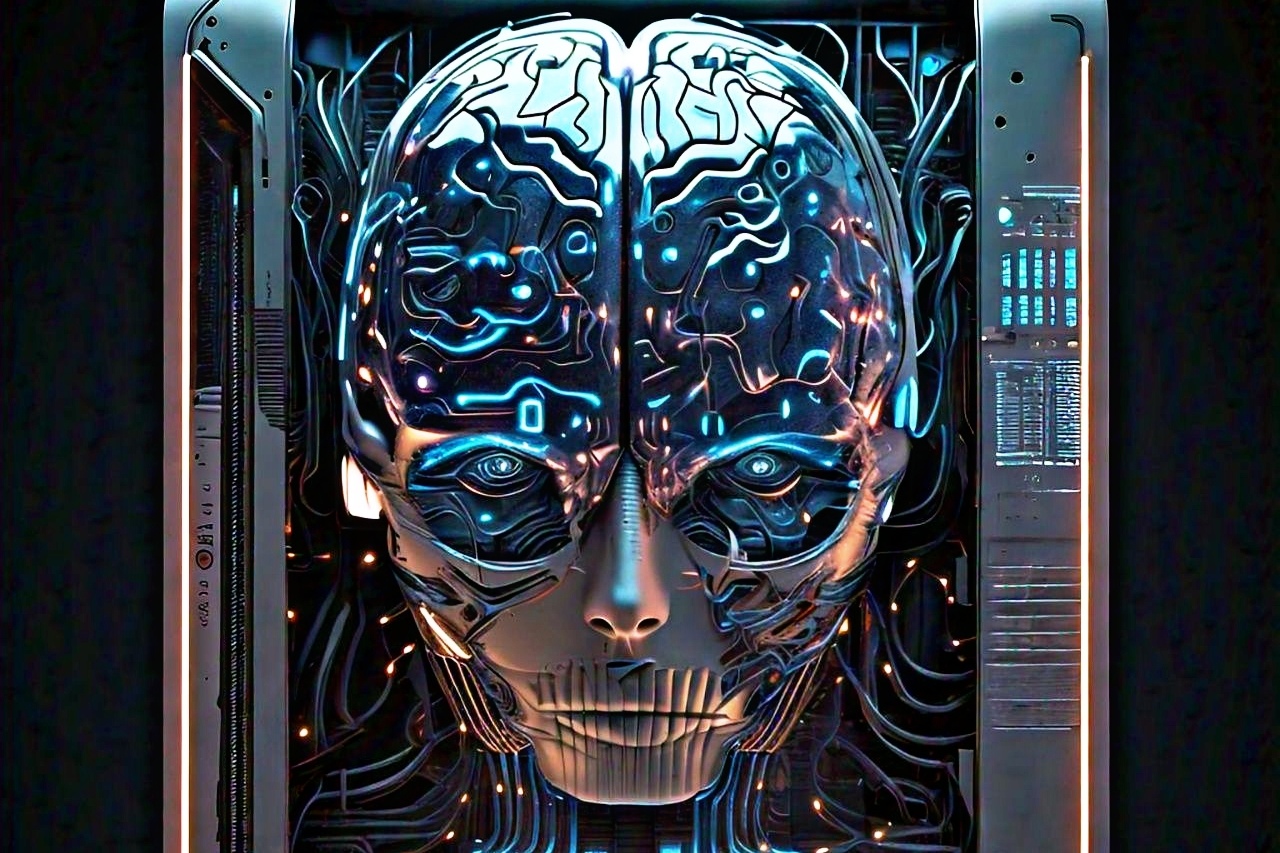Artificial Intelligence, commonly referred to as AI, is a branch of computer science that focuses on creating machines and software capable of performing tasks that would normally require human intelligence. The concept of AI dates back to the 1950s, but today, AI applications are reshaping industries and transforming our daily lives. From Meta AI’s latest innovations in social platforms to open artificial intelligence research driving forward new technologies, AI has become a pivotal force in the modern world.
This article dives deep into the meaning of AI, explores its various types, and discusses the benefits that artificial intelligence brings to our world. It also covers the important terms related to AI, such as Artificial General Intelligence, Meta AI, AI Application, Open Artificial Intelligence, AI Website and AI Applications.
What is Artificial Intelligence (AI)?
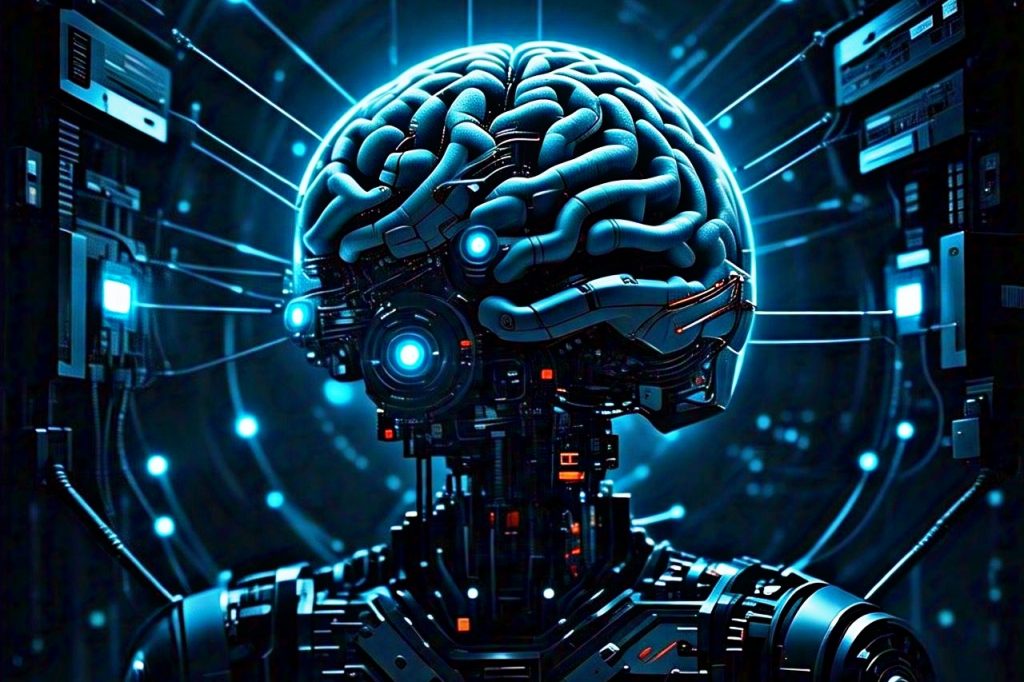
Artificial intelligence is the science of creating systems or machines that can simulate human intelligence. At its core, AI uses algorithms and computational techniques to mimic cognitive functions such as learning, problem-solving, perception, language understanding, and even decision-making.
AI can be broadly classified into two categories:
- Narrow AI (Weak AI): These are AI applications designed for specific tasks. Examples include chatbots, virtual assistants, and recommendation algorithms on an AI website. Narrow AI is limited to the scope of its function, meaning it can perform only the tasks it’s designed for.
- Artificial General Intelligence (AGI): Often considered the “holy grail” of AI research, AGI refers to a more advanced form of AI that possesses human-like intelligence. It can understand, learn, and apply knowledge across various fields and perform complex tasks autonomously. Artificial general intelligence remains a goal in AI research, with significant advancements being made, although it’s still in the development phase.
Types of Artificial Intelligence
Artificial intelligence is typically divided into four types, based on capabilities and functionalities. Here’s an overview of each type:
- Reactive Machines
- Definition: Reactive machines are the simplest type of AI and are purely reactive. They can perform specific tasks and respond to certain inputs but cannot store experiences or learn from past actions.
- Example: IBM’s Deep Blue, the computer that defeated chess champion Garry Kasparov, is a reactive machine. It could evaluate chess moves and predict outcomes, but it lacked memory or learning abilities.
- Limited Memory
- Definition: Limited memory AI can store data temporarily, allowing it to learn from past actions and adjust behavior based on experiences. Most AI applications today fall into this category.
- Example: Self-driving cars use limited memory AI. They can store information about road conditions, traffic patterns, and other drivers’ behaviors to make real-time decisions and enhance safety.
- Theory of Mind
- Definition: Theory of Mind AI is designed to understand emotions, beliefs, and other psychological states. Although this type of AI remains largely theoretical, it aims to recognize and respond to human emotions, making interactions more natural and empathetic.
- Example: An advanced customer service AI application on an AI website might eventually be able to detect customer frustration and respond with empathy, improving the interaction experience.
- Self-Aware AI
- Definition: Self-aware AI, like artificial general intelligence, is still a concept. It would possess self-awareness and consciousness, enabling it to think, understand, and adapt autonomously. Such AI would operate at a human level or beyond, with applications that could reshape the world.
- Example: Self-aware AI could, in theory, take on advanced roles, such as autonomous scientific research or complex societal problem-solving.
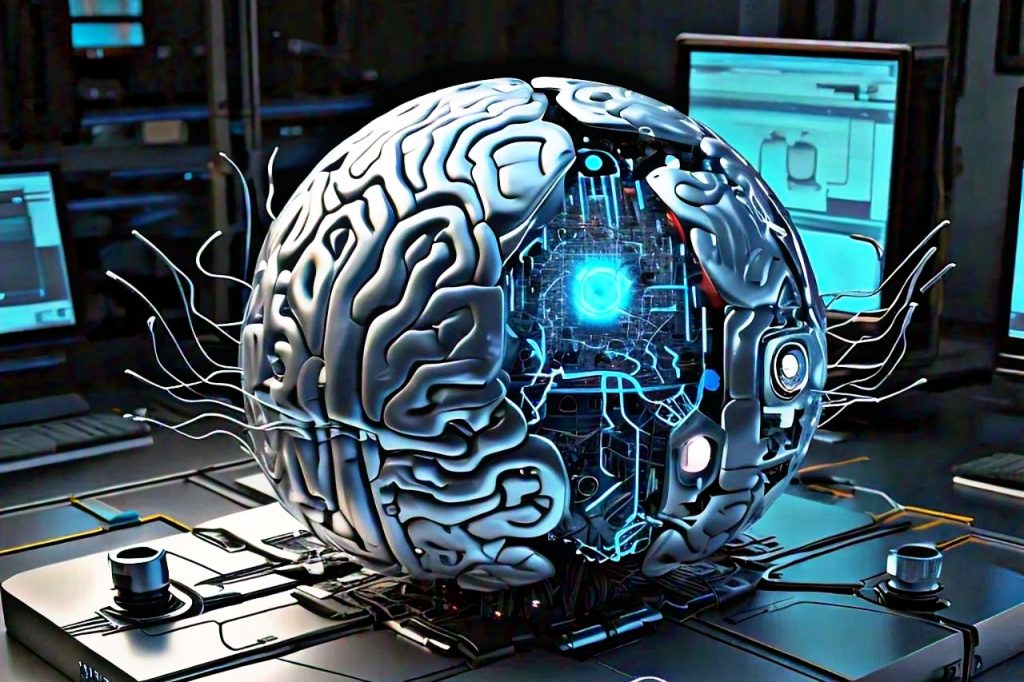
Benefits of Artificial Intelligence
The advantages of AI applications are widespread, from business efficiency to medical advancements and enhanced user experiences. Here are some key benefits:
1. Increased Efficiency and Productivity
AI applications automate repetitive and time-consuming tasks, allowing businesses to operate more efficiently. For instance, an AI website with automated customer support can respond to queries instantly, saving time and resources for human agents.
2. Enhanced Decision-Making
AI can analyze massive data sets far faster and more accurately than humans. This is particularly valuable in sectors like finance and healthcare, where data-driven insights improve decision-making. Meta AI, for example, uses AI to help social platforms analyze user data and optimize content delivery, enhancing user engagement.
3. Personalized Experiences
AI personalizes experiences on an individual level. From personalized shopping recommendations to tailored content on streaming platforms, AI applications enhance user satisfaction by predicting preferences. E-commerce sites and social media platforms often use open artificial intelligence to provide a more customized user experience.
4. Improved Healthcare and Diagnostics
In healthcare, AI applications enable faster, more accurate diagnostics, support personalized treatments, and even predict disease progression. AI-driven medical imaging, for example, assists radiologists by identifying abnormalities that may go unnoticed. Furthermore, AI’s predictive capabilities help in early disease detection and preventive care.
5. Enhanced Security and Fraud Detection
AI plays a critical role in cybersecurity and fraud detection by identifying patterns of suspicious activity and alerting companies in real time. Many financial institutions now rely on AI applications to monitor transactions, protect customer accounts, and prevent fraud.
6. Environmental Impact and Sustainability
AI contributes to environmental sustainability by optimizing resource usage and reducing waste. For example, AI in agriculture can monitor crop health, predict yield, and recommend optimized water and fertilizer usage. Such AI applications support more efficient farming practices, which ultimately benefit the environment.
7. Improved Accessibility
AI helps make technology more accessible for people with disabilities. AI applications like voice-activated assistants, text-to-speech, and speech-to-text technologies assist visually impaired users, enabling them to access digital content independently.
Important AI Terminology and Concepts
Here’s an overview of some essential AI terms that are frequently discussed in the industry:
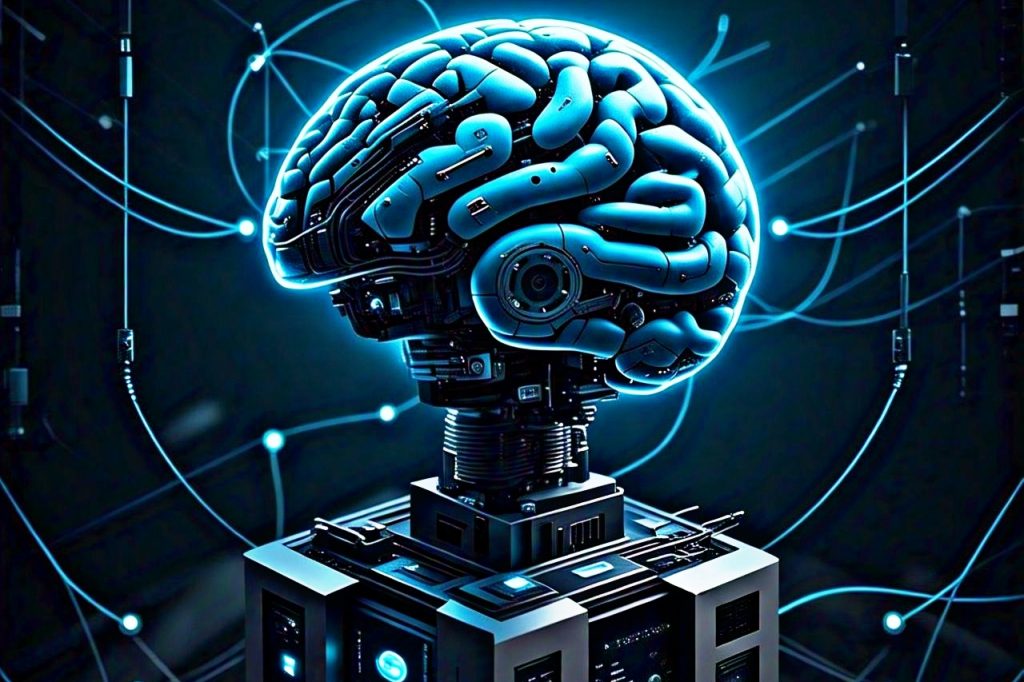
Artificial General Intelligence (AGI)
AGI is the theoretical future state of AI where machines have human-level intelligence across various domains. Unlike narrow AI, AGI would be capable of autonomous thought, creativity, and decision-making.
Meta AI
Meta AI refers to the AI research and development efforts by Meta (formerly Facebook), focusing on advancing AI applications in social media, virtual reality, and the metaverse. Meta AI aims to create AI that enhances user experiences and fosters human connection on digital platforms.
AI Application
An AI application is any software or system that uses artificial intelligence to perform tasks. Examples of popular AI applications include recommendation systems, chatbots, virtual assistants, and predictive analytics.
Open Artificial Intelligence
Open artificial intelligence refers to AI tools and platforms that are open-source or accessible to the public. These initiatives make AI technology available to a broader audience, fostering innovation and allowing developers to build on existing research.
AI Website
An AI website is a platform that offers AI-driven services or information. These sites may use AI for customer support, personalized recommendations, or as a core part of their functionality, such as virtual assistants or machine learning tools.
AI Applications Across Industries
AI applications span various industries, including healthcare, finance, retail, education, and manufacturing. Each industry uses AI to optimize operations, enhance customer experience, and drive innovation.
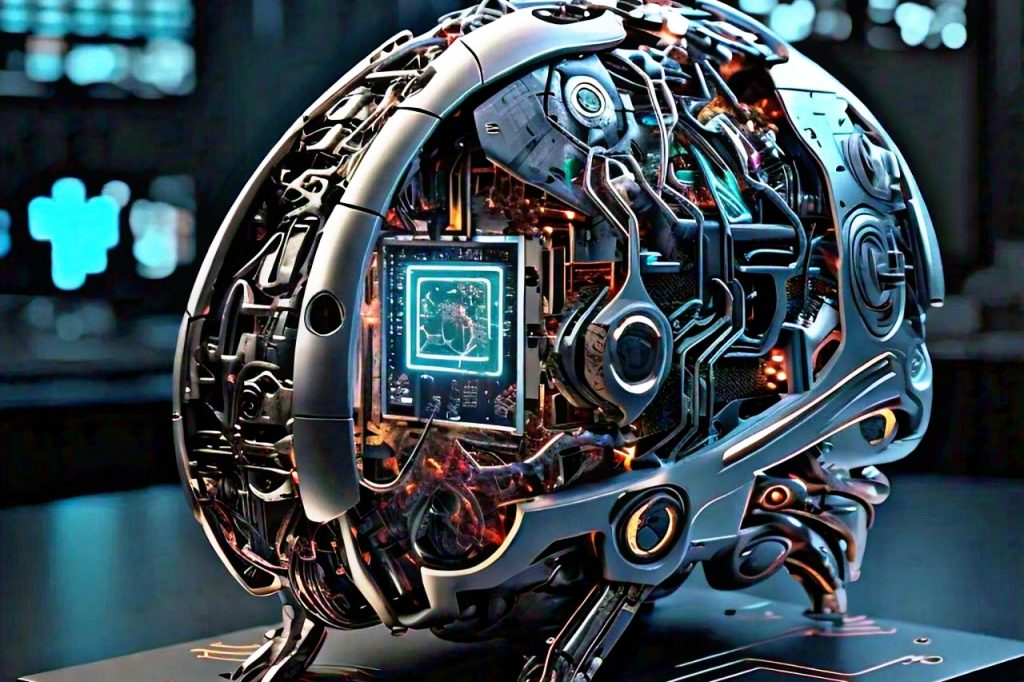
Challenges and Ethical Considerations in AI
Despite the many benefits of AI, there are also challenges and ethical considerations to address:
- Privacy Concerns: The use of AI to analyze vast amounts of personal data raises privacy concerns. Companies must prioritize data security and transparency to maintain user trust.
- Bias and Fairness: AI applications may unintentionally inherit biases present in training data. Ensuring fairness and accountability in AI algorithms is crucial to prevent discrimination.
- Job Displacement: The automation of tasks may result in job displacement for certain roles. While AI creates new jobs, it also requires a reskilled workforce to adapt to AI-driven roles.
- Safety and Control: With the development of AGI, safety and control are critical concerns. Ensuring that AGI operates ethically and under human oversight will be crucial for its safe integration into society.
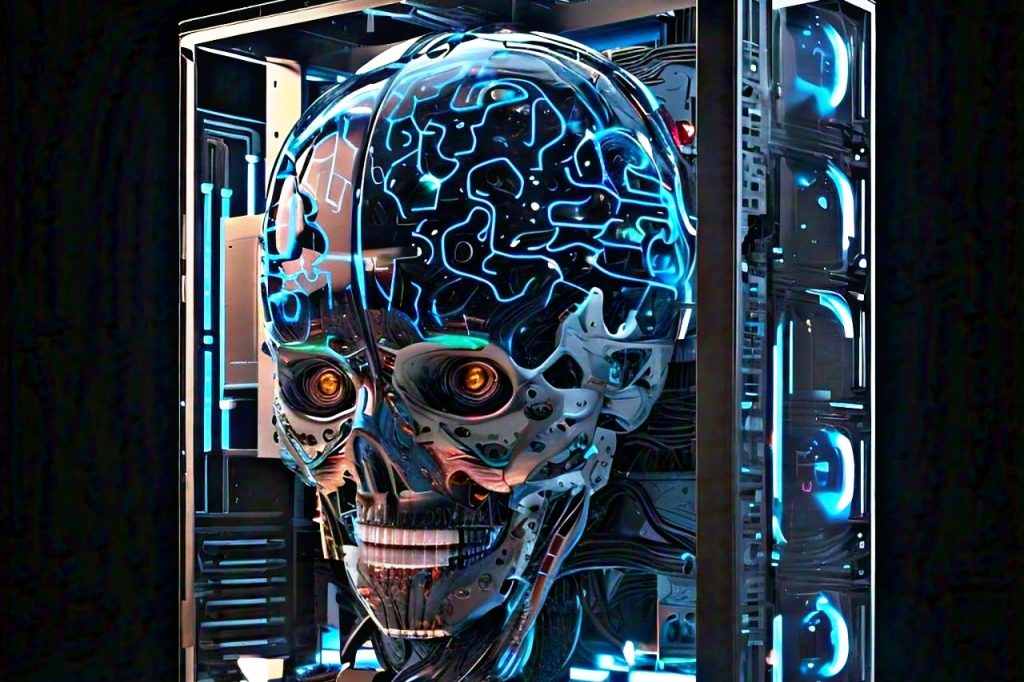
Conclusion: The Future of AI and Artificial General Intelligence
Artificial intelligence continues to push boundaries across various fields, from healthcare to entertainment and beyond. With advances in artificial general intelligence and open artificial intelligence initiatives, the potential for AI applications is boundless. Meta AI and similar platforms are paving the way for immersive digital experiences, and AI websites are making AI tools accessible to all. As we move toward a world increasingly influenced by AI, responsible development and ethical considerations will be key to harnessing the benefits of this technology for a better, more connected future.
In this journey, artificial intelligence is not just reshaping industries but also revolutionizing human experiences. As AI technology advances, its impact will be felt across every sector, improving productivity, innovation, and the quality of life globally.

